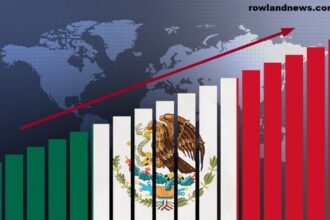Introduction: Why Learning Finance Is the Ultimate Life Skill
Imagine that you’ve just gotten your first paycheck. The feeling is great, but now what? What should you do? Should you save, invest and pay off debt, or purchase that new gadget you’ve been thinking about? It’s true that the vast majority of people were not taught to handle finances. Finance is usually the world of intimidating language or spreadsheets that are laden with complex graphs. However, it doesn’t need to be.
Finance isn’t only meant for Wall Street analysts or accountants. It’s for everyone–from high school students to retired people, as finance is a factor in all aspects of our lives. If you can learn how to handle it you’ll have more control as well as security and opportunities that you’ll be able to enjoy.
In this blog article, we’ll explain the steps to mastering financial concepts in a simple, fun, interactive, and systematic manner, with no MBA needed. If you’re just starting out or brushing up on your basics and concepts, you’ll leave with clear guidelines, resources and realistic ways to improve your financial literacy.
What Is Finance, Really?
Finance goes beyond “money stuff.” At the heart of it, finance is the study of how money changes, expands and performs its functions. This includes everything from budgeting to saving to managing risk and investment.
The three main branches are:
- Personal Finance – How people manage their finances
- Corporate Finance: How do businesses handle their funds
- Public Finance – What governments do with the issue of spending and income
Most people find that the personal financial situation is the most appropriate base from which to begin. You’ll learn to make informed financial decisions, steer clear of the traps of debt, and prepare for the future.
Start With the Basics: Financial Literacy 101
Understand Key Financial Concepts
Before you dive into applications and strategies, stocks, or other instruments, be familiar with the fundamental ideas. They will be your financial tools:
- Budgeting and planning how your money will be spent
- Saving by putting the money aside for future needs
- Investment is the act of putting money into something to work and earn money
- credit and debt, borrowing money and directing the repayment
- Interest Cost: The price of borrowing or the benefit of saving
- Inflation, the value of money varies with the course of time
Websites such as MyMoney.gov have free guides for novices that cover these basics.
Learn the Language of Money
As with all subjects, finance is no exception. It has its own language. For example, terms like “dividends,” “compound interest,” and “asset allocation” can seem confusing initially. Make use of resources like Investopedia to find definitions as well as instances in simple English.
TIP: Make A “finance dictionary” where you note down any new financial terms that you’ve learned. As time passes, you will see your financial proficiency improve.
Build Strong Financial Habits
It’s not just about mastering concepts, but also creating habits that last.
Create a Simple Budget
Begin with a budget for tracking the income, expenditures, and savings goals. Follow your own 50/30/20 principle:
- 50% of the funds will be used for necessities (rent and groceries)
- 30% on wants (entertainment or eating out, etc.)
- 20% of savings for the repayment of debt
Apps such as Mint or YNAB allow budgeting to be simple and visual.
Automate Where You Can
Create automatic transfers for savings accounts or retirement savings. It’s a “set it and forget it” method that ensures that you’re consistent and will find it less tempting to invest.
Practice Conscious Spending
Before you buy something, make sure you ask
- Do I really need it, or would I just like to have it?
- Do I have the option of buying it at a lower price at a different location?
- How does this purchase impact my goal?
These questions help you to be mindful and ensure that your spending is in line with your beliefs.
Go Beyond the Basics: Learn to Invest
When you’ve got the hang of savings and budgeting, the next thing to do is make investments–growing your funds over time.
Start With the Stock Market
It’s possible that the stock market is intimidating, but it’s actually one of the easiest avenues to riches. For beginners, it’s possible to start by:
- Index Funds are low-cost, diverse and manageable
- ETFs (Exchange-Traded Funds): Like mutual funds, however, they trade just like stocks.
- Robo-Advisors: Automated platforms for building portfolios based upon your personal risk-taking capacity
A real-world scenario. Example: If you put $1,000 into one of the S&P 500 index funds 10 years ago, it would be more than $3000 today, just through letting your funds expand with the markets.
Check out the U.S. Securities and Exchange Commission (SEC) for reliable guides for beginners on investing.
Understand Risk and Reward
The more potential for return, the greater the risk. Find out how to manage:
- Time Horizon: The time when you’ll need cash
- The risk tolerance is he degree to which you are comfortable when you face loss
- Diversification: Spreading investment options to lessen risk
Use Free Tools and Resources to Learn
There’s no need for an accounting degree, just an interest and some solid sources. The following is a good place to begin:
Books
- The Straight Way towards wealth, written by JL Collins. Excellent for those who are just beginning
- Your Money, or Life Written by Vicki Robin – Blends financial and life’s purpose
- The Psychology of Money by Morgan Housel – Offers insights into the way we think and behave
Podcasts
- Planet Money by NPR: Engaging stories that explore the relationship between economics and money
- “BiggerPockets’ Money” The focus is on personal financial planning for ordinary individuals
- Afford Everything from Paula Pant – How to make better decisions about finances and your life
Free Online Courses
They offer learning that is interactive at your own speed. Many are completely free or very low-cost.
Apply What You Learn in Real Life
Knowing is only half of the battle. The action that creates the change.
Set Financial Goals
It’s whether it’s settling the $5,000 charge card balances, planning to save up for the purchase of a house, or establishing the foundation for a $10,000 emergency savings account. Set clear and achievable objectives. Utilize SMART criteria
- Specific
- Measurable
- Achievable
- Relevant
- Time-bound
Open and Manage Real Accounts
When you’re comfortable, begin applying the lessons you’ve learned
- Create a savings account with a high yield
- Start a Roth IRA or 401(k)
- Utilize a brokerage account to make investments in index funds
Begin by making small steps. A monthly investment of just $50 could make a huge change over the course of.
Read Also: Finance Charge on a Personal Loan: What You Need to Know Before You Borrow
Learn From Mistakes–Yours and Others’
Nobody is right from the beginning. Setbacks in finances are an integral part of learning.
An actual example: Mike started investing in the market without knowing about the charges. He picked excessively expensive mutual funds, which cut the returns. After a brief introduction to low-cost index funds, he made the switch and noticed his returns increased.
Lektion: Always read the small print, read the fine print, look at alternatives and learn about the implications before taking any significant decisions.
Stay Updated and Keep Learning
The world of finance evolves. Markets change. Tax laws evolve. In order to remain on the cutting edge:
- Follow finance-related blogs such as NerdWallet, The Balance, or Morningstar
- Be sure to follow financial influencers on YouTube as well as on social media (but always check the authenticity of their information!)
- Create Google Alerts on subjects such as “personal finance tips” or “investing for beginners.”
Just 15 minutes each week of continuing education can ensure that your knowledge is kept up to date.
Conclusion: Mastering Money, One Step at a Time
The goal of learning finance isn’t to become an instant millionaire. It’s about being armed with the necessary knowledge of making smart and confident choices about the money you have. The goal is to reduce anxiety, achieve your goals and create your life on your own terms.
If you’re either 18 or 58 and up, the ideal moment to start learning about financial literacy is right now. There’s no need to be a mathematical genius or even wear a dress. All you need is curiosity, determination, and the ability to act.
Your Financial Journey Starts Today
Do you want to be in control of your finances? Pick one of the sources listed above and devote at least 15 minutes each day to studying. Make a small goal and take a single action, then build on it. There’s a way to go!
If the guide has been helpful to you in any way, send it out to your family members or friends who could benefit from financial help. Together, we can create a new norm.












